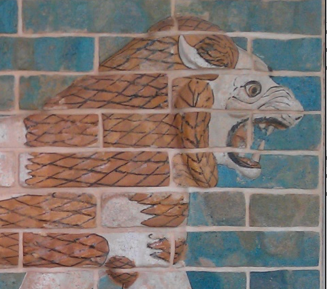Climates of Conflict in Ancient Babylonia
Principal Investigator: Dr Francis Ludlow

The CLICAB project will examine to two central hypotheses: (1) That climatic changes, including drought, flooding and other extreme weather, are linked to patterns of violence and conflict in the Ancient Near East, with climate thus playing a key but presently little-considered role in the story of this major region and era of world history, marked by violent conflict, but also material and cultural achievement. (2) That any “climate-conflict linkages” will vary meaningfully through time according to the evolving socioeconomic, political and cultural background in which climatic changes and extreme weather occurred. The project will focus upon the Fertile Crescent kingdom of Babylonia (south-central Mesopotamia, in present-day Iraq) during the first millennium BCE. Textual scholars, linguists and archaeologists of the period have generated a wealth of data that now allows the application of new expertise from environmental historians (including climate historians or historical climatologists).
To test the project’s hypotheses, the project aims to:
Success will advance our understanding of climate’s role in this formative period of history, in the context of a pressing need to understand such a role in present conflicts. It will also facilitate the application of the methodologies developed here to the multiple millennia of documented history in the wider ancient and medieval worlds of Eurasia.
Rhonda McGovern, the CLICAB PhD student, will undertake research that contributes to one or several of these aims, working closely with the project PI and the postdoctoral researcher Conor Kostick and external collaborators in the field of Babylonian documentary archives and economic history (Professor Bert van der Spek, Free University Amsterdam), Near Eastern palaeoclimatic archives (Professor Dominic Fleitmann, University of Reading) and environmental modelling (Dr Matthew Toohey, GEOMAR).
Noirin Rice is an M.Phil. student of Digital Humanities and Culture at Trinity College Dublin. She holds a BA in History and Law from the University of Zurich and worked as a student tutor from 2019 to 2021 as well as at the State Archive of Kanton Zurich from 2019 to 2022. She is currently interning at the Climates of Conflict in Ancient Babylonia project and working on her MA dissertation using quantitative methods to study conceptions of crisis in modern-day Swiss media and parliamentary discourse.


